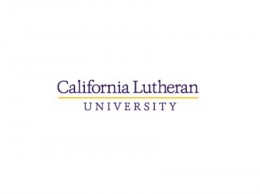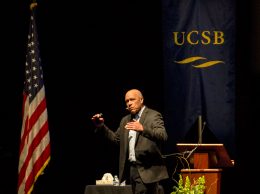Sohn is bullish on U.S. and region’s prospects for the New Year

Henry Dubroff
The tables have truly been turned.
For 2014, emerging markets, once the darling of economists, will take a back seat to industrialized nations. And the U.S. will be at the head of the pack — at least temporarily — with Southern California turning in a surprisingly strong performance.
That’s the view of Sung Won Sohn, one of the keenest observers of the global economic scene and Martin V. Smith Professor of Economics at CSU Channel Islands. He and I have had a single conversation that’s extended across nearly three decades, and I caught up with him again by phone shortly after his Jan. 8 talk at an event in Westlake Village hosted by the 101 Corridor chapter of the Association for Corporate Growth.
“I’m optimistic about 2014 but more cautious about the economy gaining a lot of altitude,” Sohn said. Factors holding back the U.S. range from “low productivity gains to a very slow rate of growth in the labor force to uncertainties coming out of Washington.”
Despite these chronic problems, Sohn, who made his mark as the former chief economist for Wells Fargo and who is regularly lauded as one of the most accurate prognosticators around, thinks that in the New Year, the competitive advantage belongs to the good ol’ U.S.A. “I am relatively more optimistic about the U.S. than any other region of the world,” he said unabashedly. “The U.S. is the best place to be if you are investing.”
What makes the U.S. economy relatively more attractive is in part the resurgence in our energy sector — we are now the largest producer in the world and any price reductions are “like a tax cut for consumers,” he said. “No. 2, there is less uncertainty about the Middle East because we don’t import as much from them. And No. 3, the cost of production is lower in the U.S., where natural gas costs about $4 per 1,000 cubic feet compared to $16 to $18 in Europe or Japan.”
Moreover, finances for U.S. households, corporations and even the federal government have improved somewhat while “competitors are moving in the opposite direction.” The increase in the payroll tax, sequester and government shutdown cost the U.S. about 1.75 percentage points in GDP growth last year. For 2014, Sohn estimates the fiscal drag as just 0.5 percentage points.
As evidence of the improving U.S. position, he cited the Jan. 8 Automatic Data Processing payroll estimate of 230,000 jobs gained in December. “It’s only one month’s number and hard to generalize, but we are getting more jobs and higher paying jobs in areas such as construction and manufacturing.” That means more businesses are ready to hire than they were two to three months ago.
For Southern California, Los Angeles County will continue to be a laggard, but the future is much brighter for Ventura County and the rest of the Tri-Counties. “Housing is helping and the state government is beginning to hire people,” he said, adding that agriculture, professional services and tourism all are trending positively. Going out a bit on a limb, he predicted that except for L.A., the rest of Southern California will outpace the nation.
Looking globally, Sohn says it is folly to think that China will overtake the U.S. as the world’s No. 1 economy anytime soon. Growth in China is going to slow and demographic problems will dramatically limit its trajectory. “By 2050 the average age of the workforce in the U.S. will be 40, in China 49 and in Japan 52. The name of the game is how to get a bigger slice of a pie that is not growing too much.”
But the U.S., too, has to face waning influence as the world’s superpower. Its aging population means a return to its 3 percent growth rate becomes more difficult absent a series of major technological breakthroughs. When you look at the impact on total capital stock, said Sohn, U.S. technology innovations such as smartphones and iPads do not have a big effect on the overall economy.
And in a world where inflation is “nowhere to be seen” and is dangerously close to deflationary boundaries, the Federal Reserve’s loose monetary policy looks like the only game in town. Immigration reform could help, but we already have more liberal rules than most nations.
The U.S. has stumbled on an economic formula for success that others are beginning to copy, Sohn said. “Two to three years ago the BRICs [Brazil, Russia, India and China] were the superstars. Now the U.S. is looking more optimistic, and even Japan and Europe are growing. The advanced nations are looking better.”
• Contact Editor Henry Dubroff at hdubroff@pacbiztimes.com











